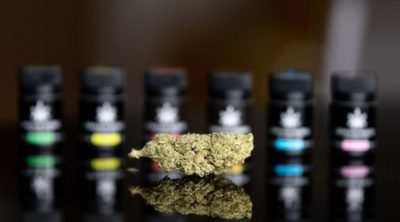CBD oil seems to be the hot topic these days. You see products claiming to be the best on the market both in stores and in advertisements. But can you use CBD oil for skin cancer treatment? Together, we will explore the topic that has everyone buzzing.
What Does the National Institute of Health Say?
A report published in February 2020 by the National Institute of Health (NIH) discusses the use of cannabinoids to treat various types of skin inflammation. Thus far, only small studies have been conducted to weigh the effectiveness and safety of CBD treatments. While the NIH recognizes that further controlled human studies are needed, the early results show promise.
Although you must be careful with anything that affects your body, you need to be especially careful with you skin since it’s your largest organ. CBD, a type of cannabinoid, seems to have a higher absorption rate. This could be good when considering the impact it could have if it’s effective, but it could also be a negative if there’s the potential for unwanted side effects.
The types of skin conditions that have been studied and show promise from CBD include:
- Psoriasis
- Melanoma and non-melanoma cancers
- Acne
- Dermatitis
- Scleroderma
However, they do acknowledge that at this point “it is difficult to establish a general safety directive.”
The American Academy of Dermatology’s Stance
The AAD, or American Academy of Dermatology, is not a proponent of using CBD oil to treat any skin-related conditions, including skin cancer. While many skin care products tout the benefits of CBD oil, there simply has not been enough research done to make any kind of valid claim.
Additionally, CBD oil is not regulated. Because of this and the fact that there still needs to be more research on the subject, these are the questions that still don’t have clearly defined answers:
- What’s the proper dosage?
- How does it interact with other medications?
- What are the side effects when it is applied to the skin?
There are just too many questions that still linger for the organization to feel it’s safe or effective for use.
CBD Oil for Other Health Conditions
CBD oil has been proven effective to treat other health conditions. So far, it seems it has proven most successful in treating seizures. In the US, there has been only one epilepsy medication approved for use in treating two rare forms of the disease: Lennox-Gastaut syndrome and Dravet syndrome. FDA approval means it is held to high manufacturing standards which include specific studies and documentation on its ingredients. This serves as a major distinction between this prescribed CBD medication and those CBD products you may find in stores.
In addition, CBD oil has been shown to relieve pain associated with multiple sclerosis and rheumatoid arthritis. It can also be used as a treatment to aid with:
- Anxiety and depression
- Cancer-related symptoms like nausea and vomiting
- Lowering blood pressure
Before you attempt any treatment on your own, be sure to discuss the use of CBD oil with your doctor.
Side Effects from CBD Oil
Even though some have seen improvements with certain health conditions when using CBD oil, it can still have negative side effects. Some common side effects may be:
- Fever
- Nausea
- Fatigue
- Liver failure (in extreme cases)
Because of these possibilities, you should always be monitored by a medical professional when using CBD products.
Summary
As you can see, CBD oil is certainly being widely considered as a possible treatment for a myriad of medical conditions. However, the effectiveness and safety of CBD oil for skin cancer treatment is still widely disputed. The bottom line is that until there are more extensive human research studies on the topic, there is no way to make solid claims for or against its use.


